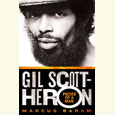Moments in the Hunger
Novelist Louise Erdrich draws from her own family history for The Night Watchman
Thomas Wazhushk — the titular character of Louise Erdrich’s engrossing new novel, The Night Watchman — paces the dark and empty spaces of the Turtle Mountain Jewel Bearing Plant in the hours before dawn, studying and strategizing ways to help his community fight for its life.

He also fights to keep himself awake through the graveyard shift. During severe exhaustion, his memories rush in, sometimes unbidden. He meets with the ghosts of friends who are long dead and relives the toughest times in his childhood: “There were moments in the hunger he would never forget.”
That early threat of starvation forced young Thomas away from home and into government boarding school — cut off from family and the Chippewa language — but now he works nonstop to keep his people together. As chairman of the reservation’s cash-strapped tribal council, Thomas relies on his night watchman’s salary to fund the vital community work he does during the daytime, as well as to support his family’s loving but crowded household.
In an afterword to the novel, Erdrich describes how she created Thomas by drawing on the experiences of her own grandfather, Patrick Gourneau. As tribal chairman for the Turtle Mountain Band of Chippewa, Gourneau fought against a venal piece of anti-Indian legislation — House Concurrent Resolution 108, also known as the “termination bill.”
Passed by Congress in 1953, the resolution called for the nullification of crucial treaties. Such treaties outlined Chippewa control over their remaining lands, guaranteed vital federal services, and recognized the tribal status of the Chippewa — and ultimately, the status of all Native tribes. Losing the battle against Resolution 108 would have meant losing legal safeguards that kept these already ravaged nations from dissolving altogether.
Alongside Thomas, the novel’s other driving force is Patrice Paranteau, a powerful young woman who does precision work at the jewel bearing plant. Supremely competent in a wide range of skills, Patrice faces enormous pressure from family members who depend on her salary, friends who may or may not be trustworthy, and men whose troublemaking desires seem to follow her everywhere. Her daily life carries razor-thin margins for error.
 Luckily, Patrice “did things perfectly when enraged.” When she learns that her older sister, Vera, who’d disappeared months earlier in Minneapolis, has been spotted — in distress, carrying a new baby — Patrice marshals her inner resolve. Determined to find Vera, she leaves home for the city and initiates a chain reaction of events — some surreal, others harrowing. Her family’s dilemmas expose the ways in which poverty and systemic racism inflict impossible choices on those who are the most vulnerable and the least protected.
Luckily, Patrice “did things perfectly when enraged.” When she learns that her older sister, Vera, who’d disappeared months earlier in Minneapolis, has been spotted — in distress, carrying a new baby — Patrice marshals her inner resolve. Determined to find Vera, she leaves home for the city and initiates a chain reaction of events — some surreal, others harrowing. Her family’s dilemmas expose the ways in which poverty and systemic racism inflict impossible choices on those who are the most vulnerable and the least protected.
Meanwhile, sensing that their time may be limited, Thomas orchestrates a formal challenge to the termination bill. He gathers support from a memorable cast of friends, family, and neighbors. These efforts bring together disparate voices within the community, everyone contributing their particular experiences and perspectives to the fight.
Among those voices are guardians of the older ways, like Patrice’s fascinating mother, Zhaanat, who was hidden away from government schools as a child so that the traditions of medicine and other teachings she’d learned could survive intact. Millie, a younger tribal member who left the reservation, uses her academic study of Chippewa economics to support the legal fight in a completely different way. White locals who have come to understand why the bill would devastate their community also lend their skills to help.
Erdrich imbues The Night Watchman with her signature style: a sweeping vision of spiritual and historical resonance, animated by the rich depth of feeling within her characters and a wry current of humor. Amid its many strengths and pleasures, this novel creates a graceful meditation on the power — and the steep cost — of holding vigil for the things of our world that we love and that we know we may lose.
Thomas and Patrice both struggle under the strain of immense responsibility. But they both come to experience something else, too — glimmers of profound revelation that connect them to a story far larger than they can ever comprehend. They may labor and risk for the sake of today’s formidable troubles, but what they serve is in fact the vast wholeness of time, what Thomas’s father calls the “holy element” of time.
Awake in the middle of one winter night, Patrice steps outdoors into “a resounding silence.” She no longer knows what she hungers for, or where her next steps might take her, but she feels herself “included in the pause of some vast complex idea, and she wondered. Will I be included in the next thought?”

Emily Choate holds an M.F.A. from Sarah Lawrence College and is the fiction editor of Peauxdunque Review. Her fiction and nonfiction have appeared in Mississippi Review, Shenandoah, The Florida Review, Tupelo Quarterly, Bayou Magazine Online, Late Night Library, and elsewhere. She lives near Nashville, where she’s working on a novel.


